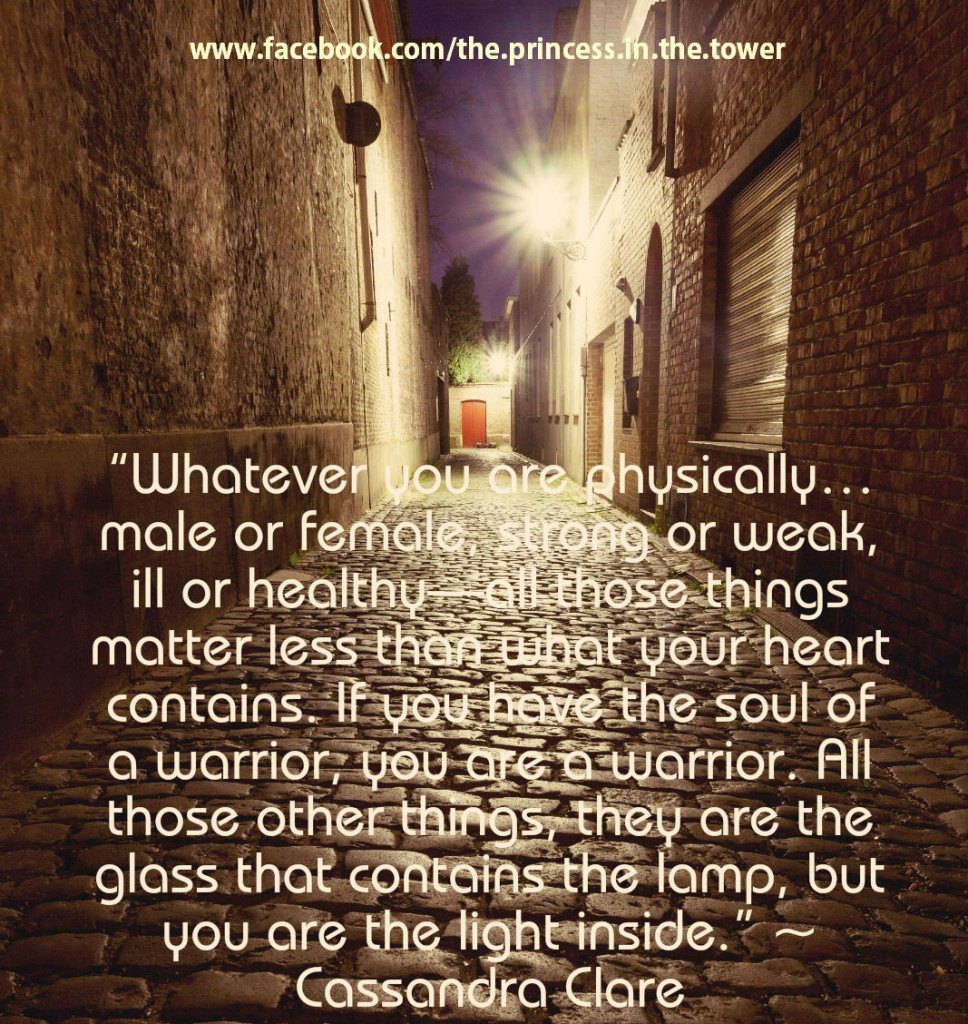Nothing can affect us so deeply as our emotions. When those emotions become dark and us isolated in both pain and depression, it can seem impossible to find our way out of the darkness. Depression that is caused by painful chronic illness can aggravate your symptoms, especially pain and fatigue. In turn reducing already limited interactions with others and isolating you further, which likely increases depression.
It’s a loop. But you can break that loop, no matter how far-fetched that idea may seem right now. While overcoming depression may not be quick nor easy, it’s not impossible. Although it cannot be beaten through sheer willpower, you do have some control, even if your depression is severe and persistent.
Chronic Pain and Depression
The link between severe illness and depression is an obvious one. Aside from pain now being a constant companion, pain patients have had to say goodbye to any semblance of a normal life. Their goals, dreams, work, and social life can all be affected.
Hopes of having a family or being able to look after the family they already have can become a new source of sadness. Finances may also become a problematic as the ability to work is diminished or lost altogether.
It’s no surprise then that this can trigger depression, especially when mobility and independence is lost. Instead replaced by an unwelcome visitor that’s designed to test you to the edge.
Worse still, nobody can see this unwelcome visitor. So even loved-ones have little understanding of how hard someone whose life has been turned upside down by a complicated pain condition(s) fights just to exist, and may also drop away, leading to further isolation, which worsens the depression.
Lack of Understanding
Many complex and painful chronic conditions are poorly understood and treated. CRPS for example, is often a mystery to our doctors let alone our loved ones. Fibromyalgia, CFS, EDS and many invisible illnesses are frequently looked upon as being far less serious than they are. This lack of understanding and belief can only serve to worsen how we feel, the likelihood of depression worsening and in turn our ability to be proactive.

There is nothing more immobilising than depression combined with pain. The pain can act as a constant reminder of the losses too, making it all the more difficult to shift our own thinking to lighter places.
While loved-ones may just consider your depression to be a natural part of being in pain, failing to treat both the depression and the chronic pain/illness can only lead to a further decrease in function and more intense and dark feelings.
Treating Pain and Depression
Both must be treated and you feel supported but as it is so common for others to be mystified instead of supportive, as with everything, it is best to be proactive in finding solutions ourselves. Though depression is especially hard as by its very nature it makes you unable to do the very things you need to get better, there are little things you can do to increase your recovery.
Depression doesn’t have to be forever. Right now it may feel like hope is a far and distant thing. Depression drains your energy and depletes feelings of hope. Though hope itself does have a darker side, keeping us in situations that we may be better leaving behind, unless there is a little hope, it becomes all the more difficult to keep going.
Start Small
The key is to start small and build from there. Feeling better takes time but you can make it through if you make small and gentle changes and positive choices for yourself each day. Begin with a few tiny goals and supportive actions and increase from there (see below), drawing upon whatever resources you may have to support you.
Put Your Pain on the Page
Something as simple as starting a journal and venting your thoughts every morning can be immensely healing for both pain and depression. Journalling has helped many people who live with pain and illness. There is simply too much going on in our heads. Putting our pain on the page is healing, and with it, we can help heal ourselves too.
Before you go to sleep, you can use another notebook that is dedicated entirely to things you are grateful for. Although to a healthy person many things we deem as luxury are considered a normal part of life, like being able to sit up, stand or walk when we want to, the act of writing down the things you do have and do appreciate with gratitude, can instigate a subtle shift in your thinking and that shift can evolve and grow, speeding up your healing.

Surround yourself with things that make you smile
Surround Yourself with Positive Things
Something as simple as a photograph on your wall of a loved-one laughing or a beloved pet playing in the park for instance, can bring a little warmth to your centre. When you string these micro moment of content together, even the darkest days can see a little light.
It’s important to find the joy in the little things. When all is so lost and your hope turns to depression, while lost in the depths of the black dog that is depression, everything and anything that makes you smile for even a moment is altering your inner chemistry, releasing a little dose of feel-good endorphins into your brain. Cherish yourself and nurture yourself in every way you can.
Structure and Recovery
Decision making when you are depressed becomes far more difficult, and given that life is so laden with making decisions this can be an added source of distress. Having a plan, a structure to your days and weeks can help. Everyone works differently and for some, list making and detailed plans can help them re-enter the world after being deep in depression.
For others, simple reminders of what is important and gentle guides on post-it notes for example, can be all that is needed to instigate positive change. It may sound simplistic but when depressed our minds default to dark thoughts. It can be almost impossible to exonerate ourselves without some kind of support system, ideally from outside too but support yourself too.
Get Support
Getting the support you need plays a big role in lifting the fog of depression and keeping it away. On your own, it can be difficult to maintain perspective and sustain the effort required to beat depression but the very nature of depression makes it difficult to reach out for help.
Yet sometimes even just the thought of reaching out to even close family members and friends can feel overwhelming. You may feel ashamed, too exhausted or too pained-up to talk, or even guilty for neglecting the relationship regardless of this being due to circumstances far out of your control.

Spending time with pets
Remind yourself that this is the depression speaking and that those who love you generally want to help but just do not know how to. Isolation and loneliness make depression even worse, so maintaining your close relationships and as many social activities as you are able to is a vital part of coping and management.
- Turn to trusted friends and family members: Share what you’re going through with people you love and trust. Ask for the help and support you need. Though it isn’t easy and you may have retreated from even your most treasured relationships, reach out so they can help get you through this difficult time.
- Talk to a professional: Often it is easier for us to unburden ourselves to complete strangers rather than close loved ones. You don’t even need to leave home as so many psychologists and psychotherapists now offer sessions via Skype. If you think you would benefit from talk therapy, look for a psychologist or counsellor who specialises in treating patients with chronic pain.
- Spent time with animals and pets: Animals can love us in ways than humans cannot. Spending time with them is healing on so many levels, especially when you are feeling depresed.
- Try to keep up with social activities even if you don’t feel like it: When you’re depressed, it’s easy to retreat into your shell, but just being around other people can make you feel less depressed.
Know That You’re Not Alone
It’s easy to feel like the rest of the world has forgotten us or doesn’t understand how isolated or limited we are. Especially with something as debilitating and mystifying as a pain condition that leads to central sensitization.
Pain can be a lonely experience and our mind often our own worst enemy, especially when bottling up how we really are feeling both physically and mentally.
Consider joining a community who knows how you’re feeling. Support groups validate your feelings and let you know that you are not alone. You can help others and find help yourself. There is no one more knowledgeable about a condition than a long-term patient.
Everything from finding out if a disability aid is worth buying to getting yourself through a bad day, they’re around 24/7 and contrary to popular belief are not exclusively full of people whining but instead trying to best play the difficult hand they have been dealt. On Facebook, Twitter or a support site, such as the Spine-health Depression forum, and speak with others who have first-hand experience with depression stemming from chronic pain. Here are a few samplings from that site: Reasons to keep your head up Laughing through it all You can get your life back.
Another great support site is Daily Strength, which has many divisions within it to support a wide range of conditions and people as diverse as we are. The Chronic Pain Support Group is another popular UK-based support site.
The Princess in the Tower Facebook page is another lovely space to meet others with CRPS, fibromyalgia/CFS/ME, lupus, and many other forms of chronic pain and painful chronic illness.
Simply letting others know that you’re having a bad day and then hearing them say how they understand what you’re going through can be therapeutic. Furthermore, talking with others who are dealing with the same pain can be a great way to learn about how they cope when feeling depressed as a result of their symptoms.

Challenge Negative Thinking with CBT
Challenge Negative Thinking with CBT
You can’t break out of this pessimistic mind frame by just thinking positively. Rather, the trick is to replace negative thoughts with more balanced thoughts. It may seem far-fetched that you can heal your thoughts when the pain is so stubbornly persistent but recent studies show that CBT is one form of therapy that is a particularly helpful component of chronic pain management.
Cognitive behavioural therapy (CBT) aims to enhance coping by changing dysfunctional thinking and behaviour, which is exceptionally useful when negative thoughts and depression start to rule your mind.
See Pain Management page and also How to Use Pain Psychology Techniques to Reduce Anxiety, Depression, Anger and Guilt for how to use CBT to help manage and release negative thoughts and repetitive thinking.
Improve Your Mood with Food
What you eat has a direct impact on the way you feel, especially on depression (read this post for specific recommendations). Aim for a balanced diet of protein, complex carbohydrates, fruits and vegetables and follow these tips to increase your body’s natural anti-depressants:
- Don’t skip meals: Going too long between meals can make you feel irritable and tired, causing a drop in blood sugar and depletion so aim to eat something at least every 3-4 hours.
- Minimize sugar and refined carbohydrates – You may crave sugary snacks, baked goods, or comfort foods such as pasta or French fries but these foods quickly lead to a crash in mood and energy. It is much healthier and better for your mood to always include a little protein with each meal, even if it’s just a few nuts; this slows down the glycemic index and thus the release of sugars, leaving you fuller for longer and less likely to feel blue.
- Eat organic free-range turkey – To increase your levels of tryptophan, and thus serotonin, you should try to include some tryptophan-rich foods in your daily diet. Also make sure that you have some unrefined, wholesome, carbohydrate-rich foods (such as brown rice) with every meal, and generally follow a healthy, varied, balanced pattern of eating. Turkey is full of the mood-boosting tryptophan, which the body converts into serotonin. Other tryptophan-rich foods include: Milk, tofu, salmon, spirulina, miso and broccoli.
- Focus on complex carbohydrates – Foods such as baked potatoes, whole-wheat pasta, brown rice, oatmeal and whole grain breads can boost serotonin levels without a crash.
- Boost your B vitamins – Deficiencies in B vitamins such as folic acid and B-12 can trigger depression. To get more, take a B-complex vitamin supplement or eat more leafy greens, beans, nuts, seeds and eggs.
- Don’t Skimp on Good Fats – Foods rich in certain omega-3 fats called EPA and DHA can give your mood a big boost. The best sources are fatty fish such as salmon, herring, mackerel, anchovies, sardines, and some cold water fish oil supplements. Canned albacore tuna and lake trout can also be good sources, depending on how the fish were raised and processed, always opt for pole-caught fish as this is the least damaging to marine populations.
Other Nutritional Reasons Why You Feel Low
Deficiencies in certain nutrients, particularly some of the B vitamins are clearly associated with depression. A deficiency in most of the B vitamins is linked to some sort of decline in mental or emotional state: depression, fatigue, confusion, memory loss, apathy, anxiety, irritability, nervousness, sleep disturbances or loss of appetite. Vitamins B3, B6, C, biotin, zinc and folic acid are also all needed for the conversion of tryptophan to serotonin to take place.
- Blood sugar imbalances – eat small regular meals of natural, unprocessed foods, including protein and fibre at each one, never going for more than four hours without food by eating healthy snacks such as seeds and fruit. Also avoid excessive sugar and stimulants.
- Deficiencies of nutrients – make sure you consume enough vitamin B3, B6, folate, B12, C, zinc, magnesium and omega-3 essential fatty acids.
- Deficiencies of tryptophan – found in fish, bananas, cottage cheese, turkey, avocados and wheatgerm.
- Deficiencies of tyrosine – found in almonds, avocados, bananas, dairy, eggs, fish, pumpkin seeds, sesame seeds and soya.
- Excessive dieting – diets don’t work psychologically or physically; the low levels of fat cause depression and alter brain chemistry, while the weight-loss is temporary. Replace dieting with a balanced, healthy eating plan instead.
- Dehydration – If you’re not drinking enough water, your body cannot transport nutrients as efficiently. Try to drink at least 1½ litres a day.
You may likely find that in treating your depression, your symptoms may reduce, including the pain. A combination of psychotherapy and/or psychology techniques, such as those found here, and combining that with natural or pharmaceutical [if that suits you better] antidepressant medication, has helped a lot of pain patients.
Natural anti-depressants include the supplements tryptophan or 5-HTP, SAMe and St John’s Wort but always discuss these with your doctor before taking them to avoid any nasty interactions with any medicine you are taking. Personally I am far happier on tryptophan than I was on the anti-depressants but as they work for 50% of people, you may find they help you more than the alternatives.

[avatar user=”jomalby” size=”thumbnail” /]





Amanda Robertson and Jenny Wendlandt Vizzard,are my friends and i would very much like to join this group.Have had RSD for 16 yrs.
Thank you Amanda and Jenny. The member’s area is yet to be set-up as focusing on creating a book for you all first but delighted to welcome you here, on the Facebook page and Twitter feed too, which is @APainPrincess. Thank you for your lovely comment.
I have learn a few excellent stuff here. Definitely
price bookmarking for revisiting. I surprise how so much attempt you
set to create one of these wonderful informative site.
Aaaand you ended with the perfect quote., by a wonderful author. The bit about pets and pictures truly does help. Thank you for writing.
You’re so welcome, Leah. Really pleased you enjoyed, and love that quote too—beautiful. Gentle hug ♥ x